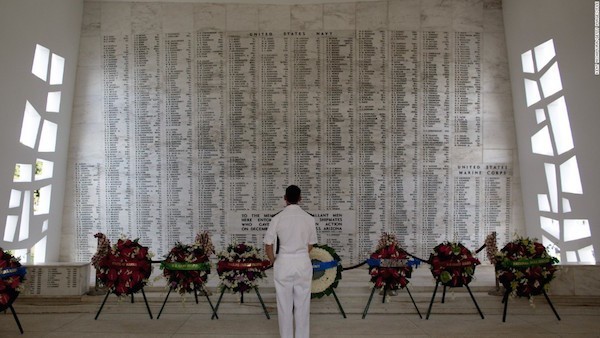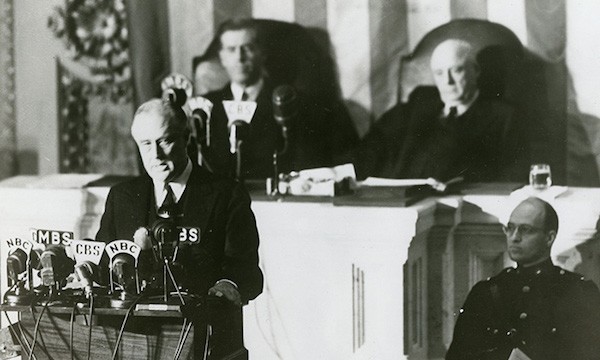74 years ago, this day drastically changed the lives of many American people.
Today is the anniversary of when the U.S. declared war on Japan. On Dec. 8, 1941, Congress declared war only a day after the Pearl Harbor attack.

More than 2,000 service members were killed when the Imperial Japanese Navy conducted a surprise attack on the U.S. naval base in Pearl Harbor, Hawaii. The U.S. lost almost 300 airplanes and 20 ships.
There are various reasons why Japan attacked Pearl Harbor, but one of the main reasons is that the attack served as a preventive strategy. The Japanese government wanted to halt the interference of President Roosevelt in Japan’s internal affairs.
Additionally, the attack was to fight back on the ban imposed by President Roosevelt on the trade functions of Japan’s export of especially steel, oil, and iron. This ban greatly affected the Japanese economy, which in turn affected their military.
This attack ultimately launched America into World War II.
President Franklin Roosevelt addressed the nation on the radio.

“Yesterday, December 7, 1941 – a date which will live in infamy—the United States of America was suddenly and deliberately attacked by naval and air forces of the Empire of Japan,” said Roosevelt. “No matter how long it may take us to overcome this premeditated invasion, the American people in their righteous might will win through to absolute victory.”
It took less than an hour for the lawmakers to act on President Roosevelt’s request to declare war. The vote in the Senate was 82-0, while in the House it was 388-1.
The only representative that voted against the war was Rep. Jeanette Rankin, who was a pacifist and the first women elected to Congress.
“As a woman, I can’t go to war,” Rankin said. “And I refuse to send anyone else.”
Despite Rankin’s protest, nine other women voted for the declaration.
World War II was the deadliest war in history and more than 50 million military and civilian deaths are estimated. Among the estimated number of people killed, about 6 million were Jews murdered in Hitler’s Nazi concentration camps as part of Hitler’s “Final Solution,” which is now known as the Holocaust.
World War II was also the largest war in history; the war involved more than 30 countries.
Although some people didn’t agree with the war, the attacks caused the majority of the U.S. to unite together and fight back.










